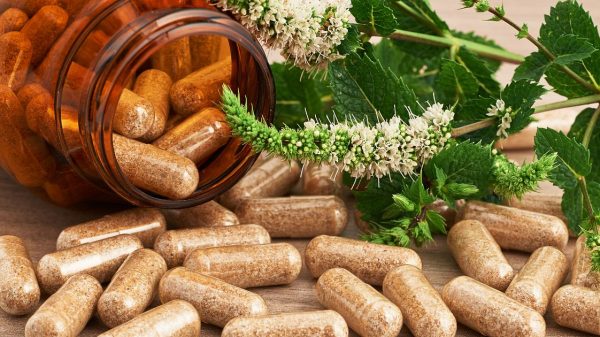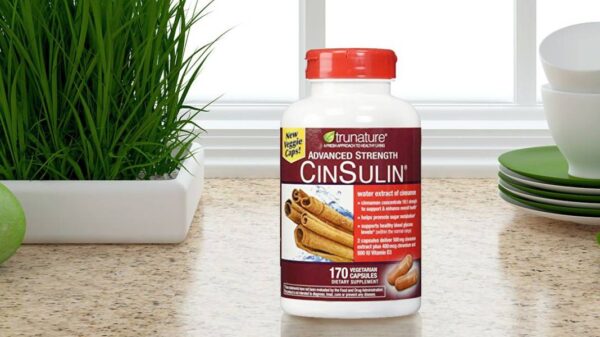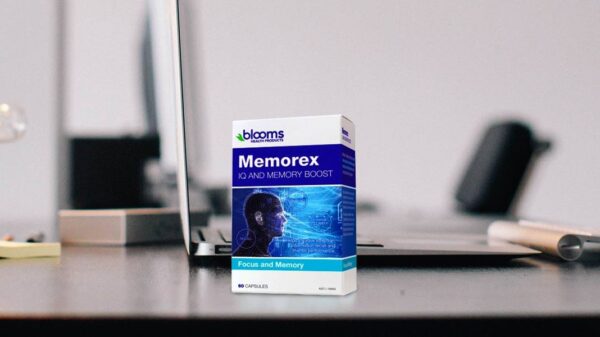1 Body Brain Support is advertised as a potent nootropic supplement for recall & memory retention, focus, clarity, enhanced learning, healthy brain function, and peak mental performance.
Our 1 Body Brain Support review below will analyze the most critical elements of this brain supplement, starting with the manufacturer and finishing with the claimed benefits, cost per serving, potential side effects, and what real buyers think of the product.
- Quick intro
- Who makes it?
- The active formula
- How it works
- Cost per serving
- Best place to buy from
- Pros and cons
- 1 Body Brain Support reviews
- Recommendations, adverse effects, and warnings
- Dosage and how to take 1 Body Brain Support
- How 1 Body Brain Support compares to alternatives
- Do we recommend 1 Body Brain Support?
Quick intro
Brain Support is a popular focus, attention, learning,memory, and cognitive support supplement from the little-known manufacturer, 1 Body.
While the product is plagued with several issues – like the inclusion of Huperzine A, the need for cycling due to having so many herbal extracts, and the use of centrophenoxine instead of a better cholinergic – the nootropic still looks like a decent entry-level cognitive support product.
Who makes it?
Brain Support is made by 1 Body, a small American manufacturer known for producing several dietary supplements for various health conditions. Some popular products include Adrenal Support, Joint Support, Liver Support, Biotin, DIM Complex, and Brain Support ( company’s best selling product).
How to contact 1 Body company:
- Website: 1body.com
- Email: help@1bodybrand.com
- Phone: 1-844-208-4908
The active formula
1 Body Brain Support contains the following active ingredients:
- Vitamin B6 (as Pyridoxine HCL) 2.5 mg
- Vitamin B12 (as Methylcobalamin) 100 mcg
- Alpha-GPC (L-alpha-glycerylphosphorylcholine) 600 mg
- Lion’s Mane extract (root) (Hericium Erinaceus) 500 mg
- Centrophenoxine 300 mg
- Bacopa Monnieri (whole plant extract) 200 mg
- Tyrosine (as N-Acetyl-L-Tyrosine) 175 mg
- Sharp-PS Phosphatidylserine (from sunflower seed) 100 mg
- Ginkgo Biloba extract (leaf) (27% flavone glycosides) 100 mg
- Suntheanine L-Theanine 100 mg
- Rhodiola Rosea extract (root) 50 mg
- Taurine 25 mg
- Huperzine A (Huperzia Serrata leaf standardized extract) 250 mcg
Other inactive ingredients include vegetable capsule (purified water and hypromellose).
How it works
In this next part of our 1 Body Brain Support review, we will discuss some of the core ingredients included in the formulation, analyzing how these ingredients can benefit you.
One of the many things 1 Body Brain Support does right is the 600 mg of Alpha-GPC per serving, which is quite a significant amount compared to what other similar nootropics offer.
Alpha-GPC is a choline-containing phospholipid obtained from soy. It provides choline for myelin production and cell membranes, consequently nourishing the nervous system.
Alpha-GPC
Alpha GPC is around 40% choline by weight. Therefore, 1,000 mg of Alpha-GPC contains about 400 mg of dietary choline. Typically, most nutritional supplements will offer a standard dose of about 200 to 400 mg of Alpha-GPC per serving, but some products can offer as low as 100 mg per serving.
Comprehensive reviews examined the effects of Alpha-GPC in over 20 clinical trials and 4,000 elderly diagnosed with a cognitive decline disease (i.e., dementia, Alzheimer’s, or Parkinson’s).
Scientists concluded that Alpha-GPC’s could prevent cognitive decline and protect the brain, independent of the cause. It also improved memory and attention better than lecithin or choline, without notable adverse effects.
Alpha-GPC may prevent and reverse cognitive decline caused by poor brain circulation, dementia, Alzheimer’s disease, and other stressors. It may also boost athletic performances, stroke recovery, eyesight, and increase mental performance.
If you are looking for a supplement to increase choline intake, Alpha-GPC and CDP-Choline tend to be higher in choline content per unit weight. They are also more readily absorbed than others.
It is also important to note that most people can get enough Alpha-GPC from foods alone. While natural sources contain only trace amounts of Alpha-GPC, your body can make it from choline.
Foods rich in choline include:
- Beef liver
- Eggs
- Chicken
- Fish (salmon)
- Whole grains
- Pork
- Shrimp
- Soybean
- Navy beans
- Low-fat milk
- Broccoli
- Green Peas
Huperzine A
Huperzine A is another popular ingredient in brain supplements. However, it’s not on our list of preferred ingredients.
Huperzine A is derived from the Chinese club moss (Huperzia serrata), a plant used in Traditional Chinese Medicine to improve memory, reduce inflammation, and treat various health issues.
While research on the health effects of Huperzine A is limited, there’s some evidence that it may offer certain benefits. Sold as a dietary supplement, Huperzine A is commonly used to treat Alzheimer’s disease.
Used in alternative medicine, Huperzine A has been discovered to act as a cholinesterase inhibitor, a type of medicine utilized to inhibit the breakdown of acetylcholine (a chemical essential to memory and learning).
Several clinical studies revealed that Huperzine A might shield against age-related cognitive decline and enhance memory and learning.
Furthermore, Huperzine A is sometimes used to boost energy, alertness, fight depression, and help manage myasthenia gravis, an autoimmune disorder that affects the muscles. However, the research here is limited.
Now, here’s our issue with this ingredient.
Although it is derived from a plant, the final product is the result of a lot of laboratory manipulation. It is a highly purified substance, unlike herbs that typically contain hundreds of chemical ingredients. As a result, some people regard Huperzine A as a drug, and they argue that it stretches the guidelines of the Dietary Supplement Health and Education Act (DSHEA).
Lion’s Mane
Another critical ingredient in 1 Body Brain Support is Lion’s Mane (Hericium erinaceus), a medicinal mushroom used for centuries in Traditional Chinese Medicine and broadly available in supplement form.
The brain’s ability to form and grow new connections typically diminishes with age, which may explain why some cognitive functions get worse in many older adults.
Data obtained from several test-tube studies, small clinical trials, and animal-based research indicate that Lion’s Mane may have various health benefits, including supporting neuronal health.
Limited research indicates that Lion’s Mane may improve stress, anxiety, and depression. A small 2010 study published in Biomedical Research concluded that Lion’s Mane might alleviate anxiety and depression in menopausal women. For the study, 30 menopausal women consumed cookies containing either a placebo or Lion’s Mane daily for one month.
After analyzing the data obtained from the clinical study, scientists noted that the Lion’s Mane group members had less difficulty concentrating and were less irritable and anxious than the placebo participants.
Cost per serving
There are several buying options for 1 Body Brain Support:
- 1 bottle (90 capsules / 30 servings) costs $33.00, or $0.36 per capsule
- 3 bottles (270 capsules / 90 servings) cost $87.00, or $0.32 per capsule
- 6 bottles (810 capsules / 180 servings) costs $156.00, or $0.19 per capsule
You can also opt-in for a “Subscribe and Save” program available exclusively through 1 Body’s official store. The program comes with an additional 35% discount for any of the three packages from above, plus free shipping.
Best place to buy from
You can buy Brain Support online through 1 Body’s official store or many other retailers such as Amazon, Walmart, eBay, VitaminShoppe, or CVS.
Pros and cons
Pros
Cons
1 Body Brain Support reviews
I am using it as recommended for pre-workout support, brain cognition, and clarity and focus. I like that it has Alpha GPC, bacopa, and Lion’s Mane, all in the same formula. Read full review
Brain Support has almost all of the ingredients I am looking for in a supplement for a reasonable price, including one I had not tried before – Lion’s Mane. I did get headaches for the first couple of days, but it was short-lived as I adjusted. I only take it during the week and notice a difference on the weekends. Read full review
I didn’t notice too much of a difference, but that doesn’t mean it’s not a good product. Everyone is different, and it could be that the ingredients in this supplement are not what I need. It may help others with low levels of what’s in this one. Read full review
Recommendations, adverse effects, and warnings
Some individuals may experience mild to moderate adverse effects after using the supplement, typically responding to how their bodies adjust to the supplement.
1 Body Brain Support side effects may include:
- Irritability
- Swelling in your hands or feet
- Insomnia
- Nausea
- Cramping
- Dry mouth
- Increased blood pressure
- Constipation
- Vomiting
- Headaches
- Loss of appetite
- Dizziness
- Sweating
- Weakness
- Muscle tension
- High blood pressure
- Slowed heart rate
- Diarrhea
- Muscle, joint, or back pain
- Drowsiness
Furthermore, 1 Body Brain Support contains Ginkgo Biloba, Huperzine A, and Rhodiola Rosea extracts. Some studies indicate that most herbal extracts are more likely to cause side effects and unwanted interactions with prescriptions when continuously taken for more than 30 days.
Therefore, it is advised to cycle the supplement regularly, taking at least 6-7 days off every three weeks. Longer breaks are recommended after repeated cycles.
1 Body Brain Support contains ingredients that may interact with medications. We recommend consulting a medical doctor before taking Brain Support if under treatment or have a known medical condition.
Dosage and how to take 1 Body Brain Support
As a dietary supplement, take three (3) capsules daily, preferably with meals or as directed by a healthcare professional.
As always, we strongly suggest reading and understanding the label before taking any dietary supplements or medications.
How 1 Body Brain Support compares to alternatives
Before we conclude our 1 Body Brain Supportreview, let’s take a quick look over several other supplements for cognitive support that may represent good alternatives for those who are not convinced by the benefits of this formulation.
Neuro-Peak made by Zhou Nutrition – With well over 11,000 positive reviews and testimonials on Amazon alone, Neuro-Peak’s formulation includes potent herbal extracts, DMAE, and a small amount of Vitamin B12 to support memory, focus, attention, and cognitive function.
According to Zhou Nutrition, this nootropic supplement is ideal for gamers, athletes, business professionals, and anyone looking for that extra mental edge. One bottle of Neuro-Peak costs $21.04 (30 capsules / 30 servings).
neuroIgnite produced by Havasu Nutrition – It is probably one of the best brain supplements available on the market. Unique formulation backed by years of extensive research, premium ingredients, excellent customer reviews, reputable company with great customer support, inexpensive compared to other similar products; all these in just one supplement.
neuroIgnite claimed benefits include:
- Fast-acting brain supplement carefully formulated with Ginkgo Biloba, St. John’s Wort, and other nootropic brain boosters to help promote a positive mood, support mental performance, and boost energy;
- It contains only premium ingredients, including herbal extracts clinically studied for mental performance, and ingredients that support focus and concentration;
- Caffeine-free mood booster that enables you to stay alert and focused without the jitters or caffeine crash.
Neuriva Plus Brain Performance, made by Schiff, is a very popular brain supplement designed to improve learning, focus, memory, concentration, accuracy, and reasoning. Schiff’s formula contains good amounts of Vitamin B6, Folate, Vitamin B12, Phosphatidylserine, and 200 mg of Neurofactor, a patented coffee fruit extract. Neurofactor is clinically proven to increase levels of Brain-Derived Neurotrophic Factor (BDNF).
You can read our in-depth Neuriva Plus review here.
Do we recommend 1 Body Brain Support?
1 Body Brain Support is one of the many nootropics for recall & memory retention, focus, clarity, enhanced learning, healthy brain function, and peak mental performance.
The formula contains ingredients with proven benefits for brain health (i.e., L-Theanine, Alpha GPC, or Phosphatidylserine) and ingredients we can’t recommend (such as Huperzine A).
Overall, 1 Body Brain Support is a mix-bag of pros and cons, but the supplement may be a good choice for those looking for a natural nootropic at an affordable price.
Frequently Asked Questions
Sources
At OneBrainReviews, we only use primary references for our articles, including peer-reviewed medical journals or well-respected academic institutions.
- Pier Luigi Scapicchio – Revisiting choline alphoscerate profile: a new perspective, role in dementia? Published online on February 19, 2013. Retrieved on May 19, 2021. [Source]
- Steven H. Zeisel and Kerry-Ann da Costa – Choline: An Essential Nutrient for Public Health. Published on November 25, 2009. Retrieved on May 19, 2021. [Source]
- Lucilla Panetti, Fiorenzo Mignini, Daniele Tomassoni, Enea Traini, and Francesco Amenta – Cholinergic precursors in the treatment of cognitive impairment of vascular origin: ineffective approaches or need for re-evaluation? Published on February 28, 2007. Retrieved on May 19, 2021. [Source]
- Enea Traini, Vincenzo Bramanti, and Francesco Amenta – Choline alphoscerate (alpha-glyceryl-phosphoryl-choline) old choline-containing phospholipid with a still interesting profile as a cognition-enhancing agent. Published in December 2013. Retrieved on May 19, 2021. [Source]
- Francesco Amenta, Maria Antonietta Di Tullio, and Daniele Tomassoni – The cholinergic approach for the treatment of vascular dementia: evidence from pre-clinical and clinical studies. Published in November 2002. Retrieved on May 19, 2021. [Source]
- L. Panetti, F. Amenta, and V. Gallai – Choline alphoscerate in cognitive decline and in acute cerebrovascular disease: an analysis of published clinical data. Published in November 2001. Retrieved on May 19, 2021. [Source]
- Cristian Reinhard Prelicz and Lucia Maria Lotrean – Choline Intake and Its Food Sources in the Diet of Romanian Kindergarten Children. Published on August 18, 2017. Retrieved on May 19, 2021. [Source]
- National Institutes of Health (NIH) – Choline. Retrieved on May 19, 2021. [Source]
- Shu-Huai Xing, Chun-Xiao Zhu, Rui Zhang, and Li An – Huperzine A in the Treatment of Alzheimer’s Disease and Vascular Dementia: A Meta-Analysis. Published on February 3, 2014. Retrieved on May 19, 2021. [Source]
- Hemant Kumar, Sandeep Vasant More, Sang-Don Han, Jin-Yong Choi, and Dong-Kug Choi – Promising Therapeutics with Natural Bioactive Compounds for Improving Learning and Memory – A Review of Randomized Trials. Published in September 2012. Retrieved on May 19, 2021. [Source]
- Jirong Yue, Bi Rong Dong, Xiufang Lin, Ming Yang, Hong Mei Wu, and Taixiang Wu – Huperzine A for mild cognitive impairment. Published in December 2012. Retrieved on May 19, 2021. [Source]
- WebMD – Huperzine A. Retrieved on May 19, 2021. [Source]
- Sara N. Burke and Carol A. Barnes – Neural plasticity in the aging brain. Published in January 2006. Retrieved on May 19, 2021. [Source]
- Vikineswary Sabaratnam, Wong Kah-Hui, Murali Naidu, and Pamela Rosie David – Neuronal Health – Can Culinary and Medicinal Mushrooms Help? Published in January 2013. Retrieved on May 19, 2021. [Source]
- Rxlist – Bacopa. Retrieved on May 19, 2021. [Source]
- Rxlist – Huperzine A. Retrieved on May 19, 2021. [Source]






